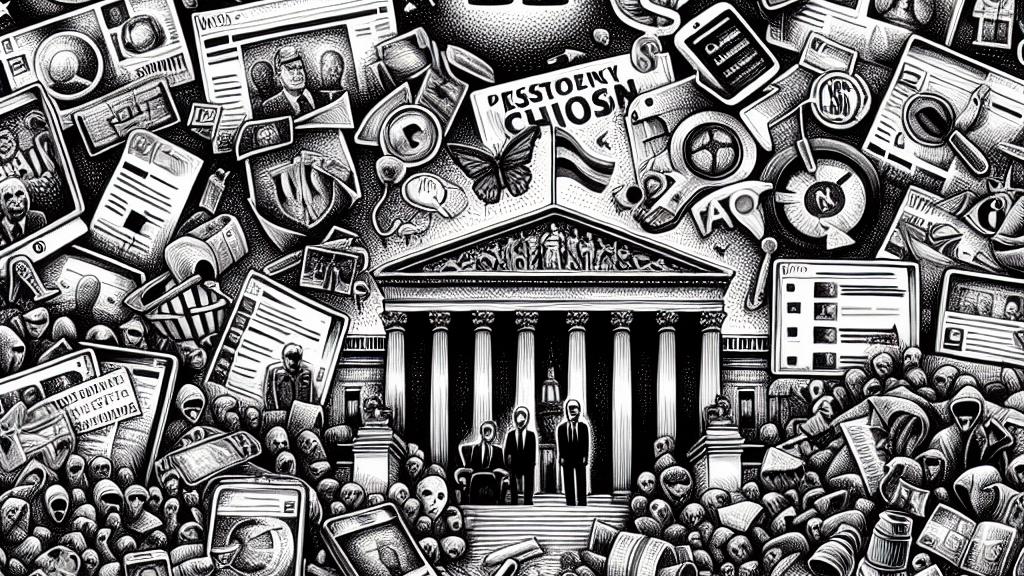The Political Intrigue Behind the Equatorial Guinea Scandal
Overview
- The scandal involving Baltasar Ebang Engonga reveals a labyrinth of political deception.
- Leaked tapes ignite speculation about a ruthless power struggle among the elite.
- Equatorial Guinea’s political landscape exposes corruption and manipulation at the highest levels.

Background of the Scandal
In a dramatic episode that seems to be straight out of a political thriller, Baltasar Ebang Engonga, a prominent figure in Equatorial Guinea, finds himself embroiled in a massive sex tape scandal. Over 400 graphic videos have flooded social media, showcasing Engonga in intimate encounters with multiple women, many of whom are connected to the nation's elite, including relatives of high-ranking officials. This torrential leak of scandalous content is not merely a sensational story but a critical insight into the country’s murky political waters, where power plays are common, and reputations can be destroyed in a heartbeat. As these videos began appearing online shortly after Engonga's arrest on corruption charges, one can't help but ponder whether this is a calculated attempt by his rivals to undermine his position as a potential successor to President Teodoro Obiang Nguema.
Political Implications
The implications of this scandal ripple far beyond Engonga’s personal life. It serves as a potential turning point in the ongoing power struggle within Equatorial Guinea’s tightly controlled political landscape. Observers suggest that the emergence of these explicit videos, coinciding with Engonga's ousting, indicates a strategic maneuver by internal adversaries who are keen on discrediting him. For instance, rival factions within the government may be employing this scandal as a warning to others who might harbor political ambitions, as loyalty becomes a double-edged sword. This high-stakes game of power is especially poignant in a country where political dissent is often met with swift and brutal repercussions. Additionally, the public's reaction—mixed with shock and sensationalism—highlights how political intrigues often play out in the social media age, leading to unforeseen consequences for those involved.
Power Dynamics in Equatorial Guinea
Equatorial Guinea's political environment is a complex and perilous landscape, characterized by an unyielding grip on power by President Obiang, who has ruled since 1979. His regime, notorious for extreme human rights abuses and a complete lack of political freedoms, creates an atmosphere where corruption thrives. While one might consider the elections to be legitimate democratic processes, reality paints a much bleaker picture where results are often predetermined and dissent is swiftly silenced. The recent tumult surrounding Engonga’s scandal not only underscores the pervasive corruption but also illustrates the high-stakes nature of political survival in a system where betrayal lurks around every corner. In essence, this scandal provides a rich narrative that intertwines personal failings with the broader issues of governance, control, and the intricate dance of power within a nation that desperately clings to stability amidst chaos.

Loading...